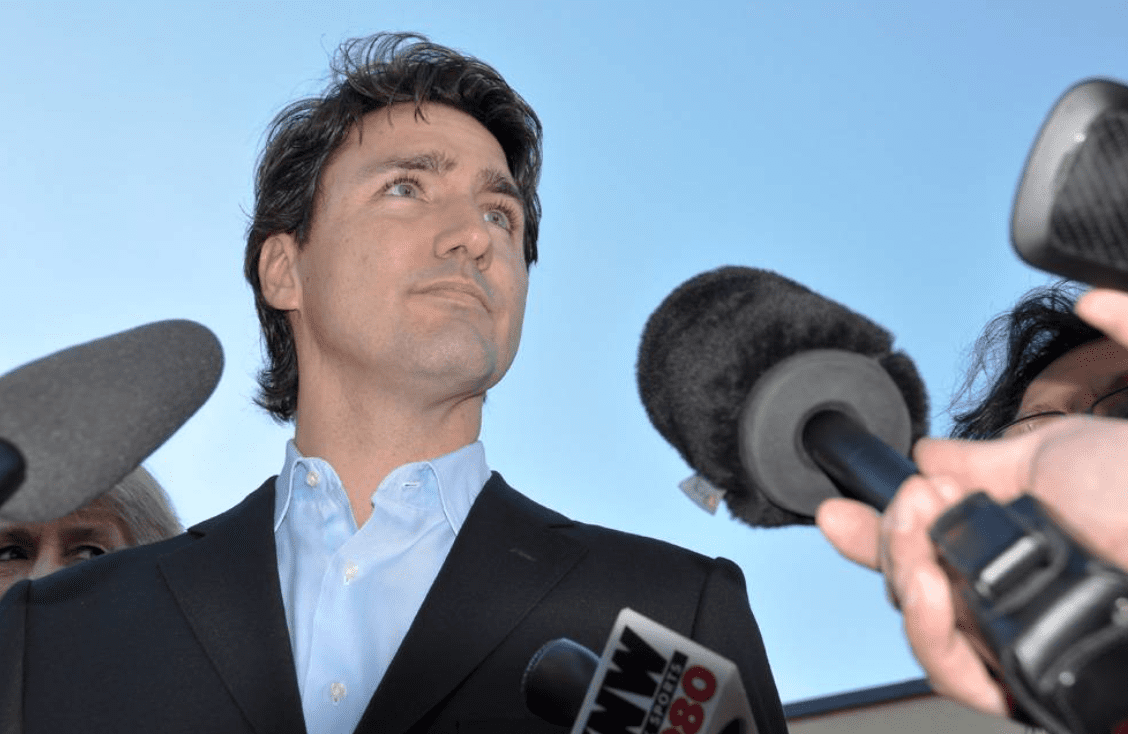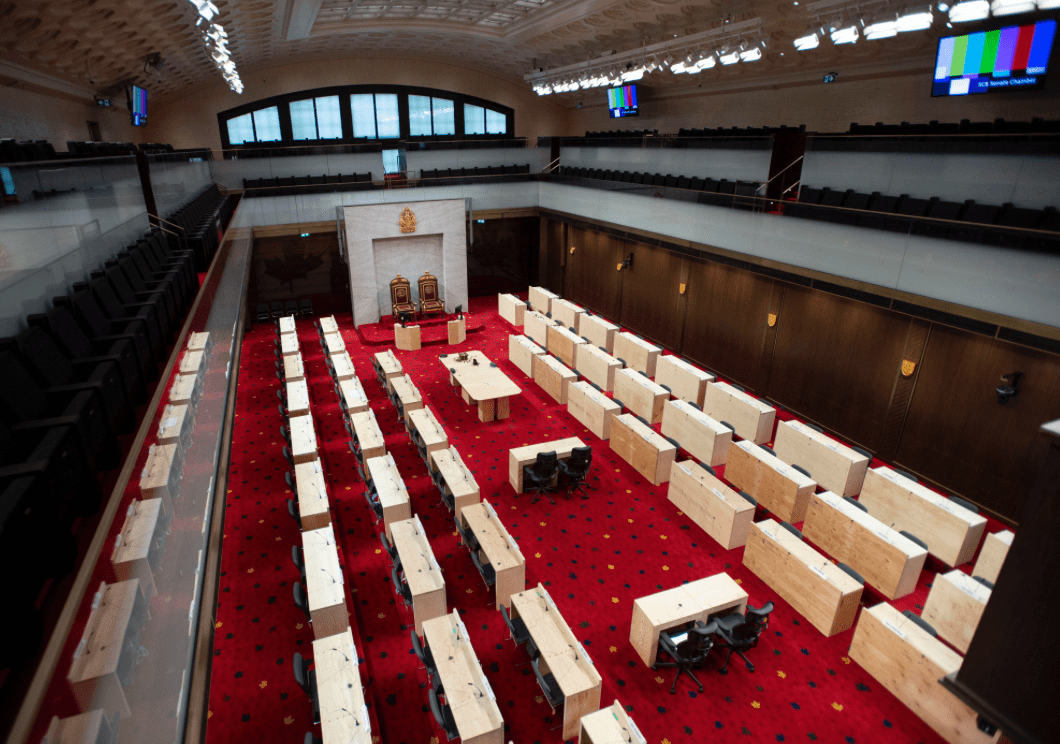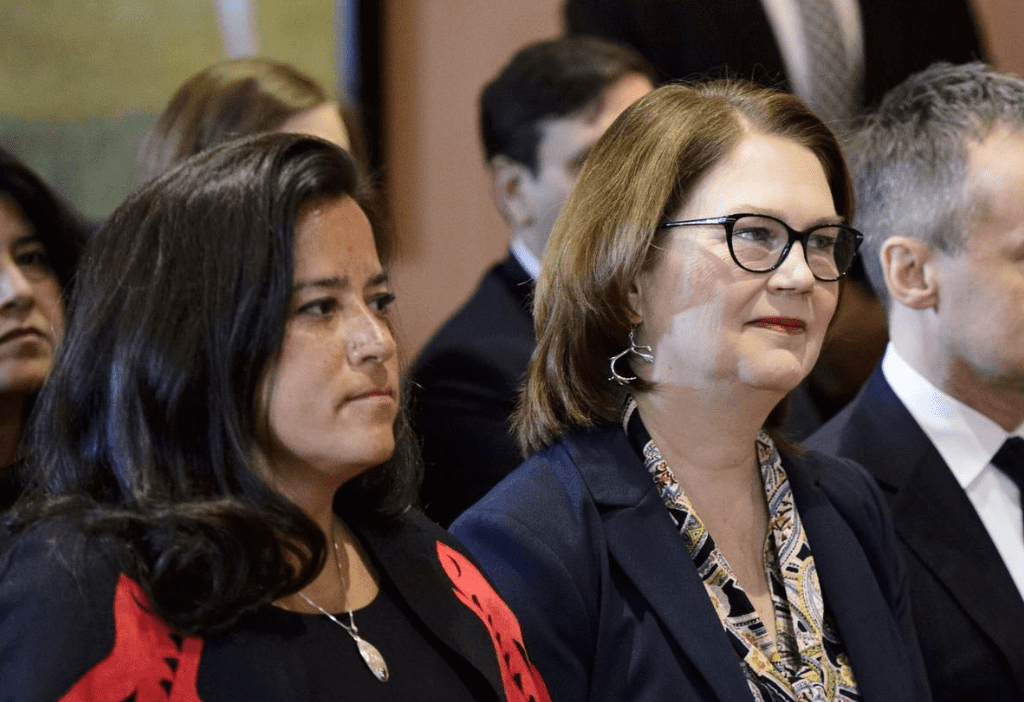As the national conversation around the Double-Hyphen Affair carries on interminably, and both sides of the dispute continue to draw blood without a decisive blow, while everyone else keeps demanding a smoking gun that doesn't exist, there is a part of this conversation that only gets referred to in snide asides the sarcastic refrain of "so much for doing politics differently." Indeed, it's also something that Jody Wilson-Raybould keeps going back to herself in her own written statements about her future, as she justifies her actions throughout the whole Affair. But how much of this is really about doing politics differently, or how differently can politics be done, particularly in a country like ours?
A lot of the fallout of this Affair has been the Trudeau Liberals laying in the bed that they made for themselves, given how they constantly made a point of how virtuous they were. Gender-balanced cabinets were not only because "it's 2015," but it was also articulated as an affirmative action program for mediocre men. "Add women, change politics," was a slogan that is now being repeated back to them because apparently, they did change politics. "Nines hire tens" was another phrase that should also be thrown in their faces given some of the incompetence we've seen in how they've handled themselves throughout.
Don't get me wrong to a certain extent, they are doing things differently than the previous government did. There are two-fold problems with this, however one is that they think it's enough and they can rest on those laurels, and the other is dealing with the expectations they've created. After all, "doing politics differently" is vague enough that it lets people conjure up a unicorn that will never be achievable in real life. And yet, there is so much high-mindedness by this government that it quickly reached a point of arrogance, which also explains why they're so bad at issues management and communications. They refuse to communicate like human beings, or to properly deal with the problems they've created for themselves because they appear to be too good to do so and that's a problem for them. I'm not sure that this is the kind of "doing politics differently" that would endear them to anyone. And yet here we are.
Part of the problem with thinking that you can (or should) approach politics or governing from a standpoint of being so performatively principled is that reality gets in the way and there is a lot of hard reality to governing in Canada. There are a myriad of provincial, linguistic, and cultural interests that are difficult to bridge at the best of times, which are compounded by the other realities of the country, such as the oligopolistic nature of so much of the business community, which makes it difficult for governments to deal with them in a way that is different from any previous government, which is why this collision with SNC-Lavalin, or another major corporation, was in many ways inevitable. And a government that is high on its own virtues will deal with them in a way that means well trying to protect jobs being the obvious example. Going out of their way, in fact, to try and do so, and look at where it got them.
Amidst this, I have to wonder where "doing politics differently," with adding women to change politics, and all of those kinds of slogans, butts up against reality. At what point to we expect the dose of cynicism to come in? At what point do we expect compromises in order to deal with some crisis, real or imagined, in order to get things done? And that's partly where I think this whole Affair starts to get messy for people was it unfair to expect strong, principled women like Wilson-Raybould and Jane Philpott, who had little previous political experience, to accept some of that cynicism then they were promised a different way of doing things? After all, so much of politics deals with horse-trading and compromises particularly when you are balancing as many competing interests as we have in Canada. How much of the conversations over SNC-Lavalin had to do with trying to find compromises, and was that interpreted by Wilson-Raybould as pressure or interference? Experienced ministers and staffers insist that their jobs deal with pressure, but did this rise to the level of inappropriate pressure? There is no bright line for this, and I am forced to wonder if this too didn't get compounded by the expectations of doing politics differently, creating an interpretation of the events for Wilson-Raybould that didn't mesh with those of the others?
I go back to that open letter that Wilson-Raybould put out where she dismissed the "old, cynical view" of the way things get done, and talks of "doing politics differently" in particular, in a less-partisan and more open manner, striving for consensus, and rejecting the "increasing culture of conflict, empty partisanship, and cynical games." As part of her submission to the justice committee, she added that she looks forward to a future "where we truly do politics differently." She sees herself as a truth-teller and has these principles that I wonder whether they are able to survive the intractable, grimy realities of politics particularly given that Wilson-Raybould resorted to breaching her own ethical obligations by recording that conversation with Michael Wernick, and gave a performance on the tape that was recognizable to someone like me, who does interviews on tape for a living, as directing the conversation and asking leading questions in the hopes of getting a "gold" quote for future use. Recording that call, making it public, and ensuring that she won't be trusted by her colleagues in the future is certainly doing politics differently but probably not in the way she espouses, which is unfortunate.
In a way, it's good that Canada can have this conversation at a time when other countries are dealing with existential crises of their own. But perhaps it should behove us to temper our expectations, and that while "better is always possible," as Trudeau keeps saying, "doing politics differently" is a loaded term. But the bottom line is that this government can't just rely on assuring everyone that they're virtuous that has clearly blown up in their faces, and it's time to return to a dose of reality.
Photo Credit: CTV News









